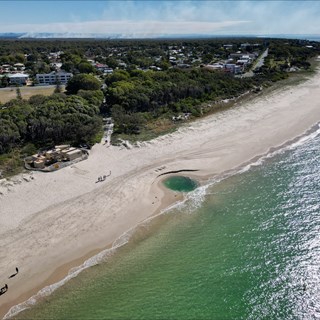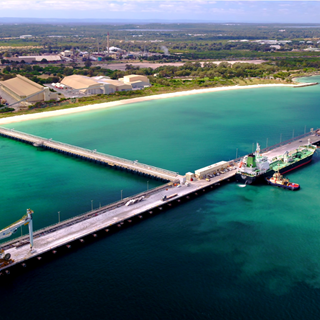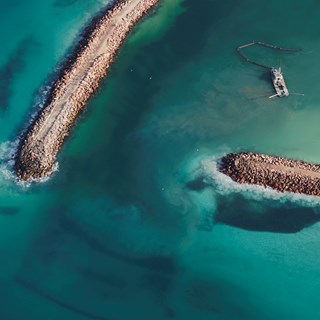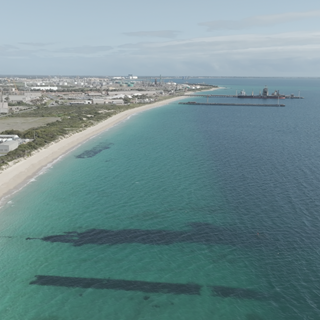

I have studied and worked in the maritime sector for over 7 years before I joined BMT over a year ago as an Environmental Consultant.
BMT is a great place to work where like-minded people turn discussions and concepts into meaningful actions. BMT has a family-friendly atmosphere and offers opportunities to grow and expand our knowledge in a wide scope of Defence maritime work, with every piece working one step closer to improving the maritime environment.
I’ve been lucky enough to have worked on some great and diverse projects including the Ultrasonic Cleaning Technology Investment Study, the development of Ministry of Defence (MOD) specific Carbon Assessments, compliance statements and environmental studies for directorates at Navy Command HQ (NCHQ).
One of the projects I really enjoyed combined my interest in using nature-based approaches to the effects of climate change and my passion for diving.
Blue Natural Capital
Sustainable solutions to climate change are now being broadened beyond terrestrial forests that contain rich carbon reservoirs to reduce the potentially significant emissions from conversion and degradation. Marine and coastal ecosystems, such as seagrasses, tidal marshes and mangroves, sequester and store large quantities of ‘blue carbon’ in both the plants and the sediment below them.
By providing valuations of the UK’s natural capital, decision makers can better include the environment in their plans to allocate resources to develop, and promote the growth of the economy.
Understanding nature as an asset which provides flows of services to deliver benefits provides us with a framework to manage it well to deliver for society's needs, and our clients. Natural capital is not a new concept and has been used around the globe for over a decade. However connecting costings with the natural environment has gained traction because it offers a balanced focus on natural assets in ecological terms (their quantity, condition and sustainability) and the social and economic benefits that derive from those assets.
A key blue asset for the UK is seagrass. As a habitat that can bury carbon at a rate that is estimated to be 35 times faster than tropical rainforests, it has gained a lot of traction in the UK as it used to be the most common marine habitat in sheltered areas such as harbours, estuaries and bays. The extensive loss of seagrass in recent years has been the result of a complex combination of factors that have fundamentally altered the UK coastline. This has led me to lead a R&D project on research into Blue Natural Capital (BNC), specifically with seagrass restoration, linking it with business development and the BMT future strategy.
Read more about the importance of Seagrass https://www.bmt.org/the-bmt-global-blog/why-is-seagrass-so-important/

N/A
Read how our evaluation of Woorim Beach’s sand backpassing trial is helping the City of Moreton Bay address erosion challenges and optimise coastal protection strategies for the future.

Karim Ghaly
Westport is the Western Australian State Government’s planning program to move container trade from Fremantle to Kwinana.

Karim Ghaly
Explore how our partnership with the Western Australian Department of Transport has enhanced coastal facilities through effective dredging and environmental management, ensuring efficient maritime operations.

Louise Bruce
Discover the Cockburn Sound project in Western Australia, where our innovative framework incorporating the BMT DEEP data platform and TUFLOW modelling software supports informed decisions, sustainable development, and enhanced environmental stewardship in this ecologically and commercially valuable region.